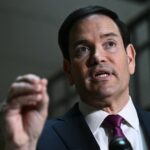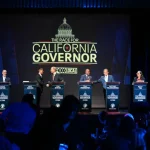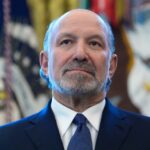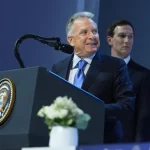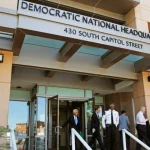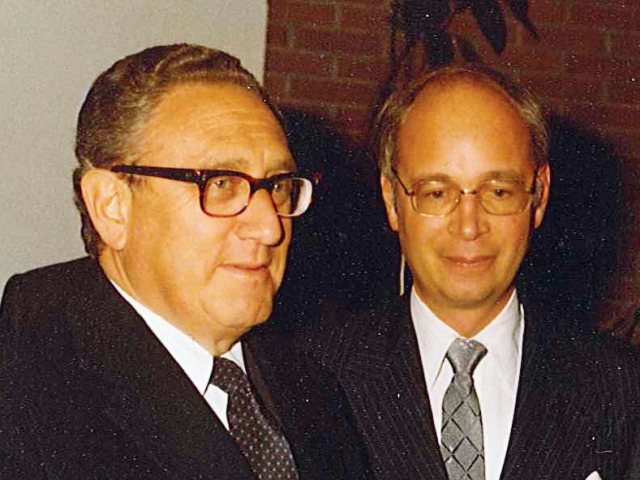
Henry Kissinger died yesterday at 100 years old. Kissinger was the most influential diplomat in modern American history, albeit a polarizing figure.
The New York Times eulogizes Kissinger as the “most powerful secretary of state of the postwar era,” adding that he was “both celebrated and reviled.” Rolling Stone leans toward the latter, as revealed in its headline: “Henry Kissinger, War Criminal Beloved by America’s Ruling Class, Finally Dies.”
But Henry Kissinger was a larger figure than can be captured by today’s “hot take” impulse. He loomed as a serious figure even to those of his time who hated his realpolitik approach to the world, and he looms large still in ways that neither his friends nor his enemies might have imagined.
Kissinger is a central character in my new book, Controligarchs: Exposing the Billionaire Class, Their Secret Deals, and the Globalist Plot to Dominate Your Life, which unearths critical details about the man who shaped the modern world, particularly by helping to shackle the American economy to the Chinese.
The book contains little-known details about Kissinger—including his success in making population control official U.S. domestic policy and his mentorship of a young Klaus Schwab before the latter’s establishment of the World Economic Forum (WEF) as the home of the global elite. Many Controligarchs might prefer these true stories be buried along with Kissinger.

Former Secretary of State Henry Kissinger (left) and Klaus Schwab at the European Management Symposium, the predecessor of the World Economic Forum, in Davos, Switzerland, in 1980. (World Economic Forum/Flickr)
Born in Germany in 1923, Kissinger immigrated to America in 1938 and was naturalized in 1943. He studied at Harvard, receiving his bachelor’s, master’s, and a PhD, from the elite university and immediately joined the Harvard faculty upon receiving his doctorate. It was at Harvard that he met future globalist ringmaster Klaus Schwab.
But before Kissinger turned Schwab into the Davos Man he is today, Kissinger became an agent of the Rockefeller dynasty. From 1954 until 1958, Kissinger was the Rockefeller Brothers Fund Director of Special Studies. The resultant 600-page globalist manifesto called Prospect for America was read around the world, and scholars agree that the Prospect for America defined a postwar “liberal consensus.”
As journalist and historian Godfrey Hodgson put it, the Rockefeller-Kissinger work became “a handbook of the shared assumptions of the American governmental and business elite.” Indeed, the Kissinger handbook stated that “the indispensable world order…is basic to the American consensus” and that the United Nations “is proof of our conviction that problems which are of world-wide impact must be dealt with through institutions global in their scope.”
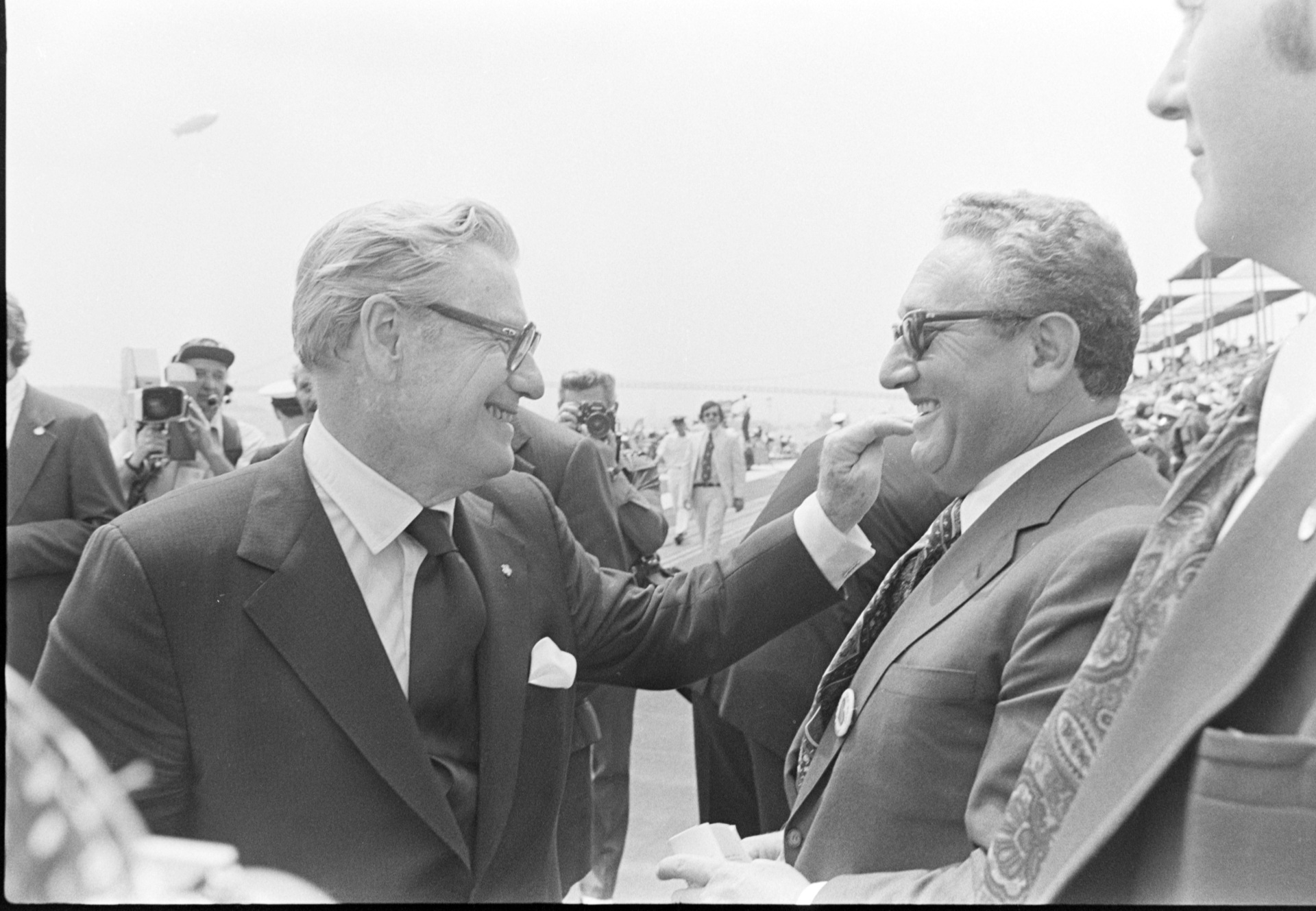
Nelson Rockefeller (left) and Henry Kissinger attend an official bicentennial celebration in New York City on July 4, 1976. (Fairchild Archive/WWD/Penske Media via Getty Images)
Kissinger returned to Harvard to run the Defense Studies Program between 1958 and 1971. It was during this time that he shaped Klaus Schwab’s future. He mentored Schwab at Harvard in 1966-1967, just a few years before Schwab founded the European Management Symposium, which was the predecessor of the World Economic Forum (WEF), in 1971 and apparently followed Kissinger’s directive to form a global scope institution that deals with crises of “world-wide impact.” The two became lifelong friends, and Kissinger was a frequent keynote speaker in Davos.
On the surface, it may seem an odd pairing: Kissinger, a Jewish holocaust refugee, and Schwab, the son of a German engineer whose industrial company supplied Adolf Hitler’s war effort.
Controligarchs reveals that Kissinger was born roughly three hours away from the German branch of Escher Wyss AG—a Swiss industrial conglomerate which supplied the Nazi’s with weapons such as flamethrowers—run by Klaus Schwab’s father, Eugen Schwab. During the Nazi era, the elder Schwab’s German factory used Allied “prisoners of war and forced laborers.”
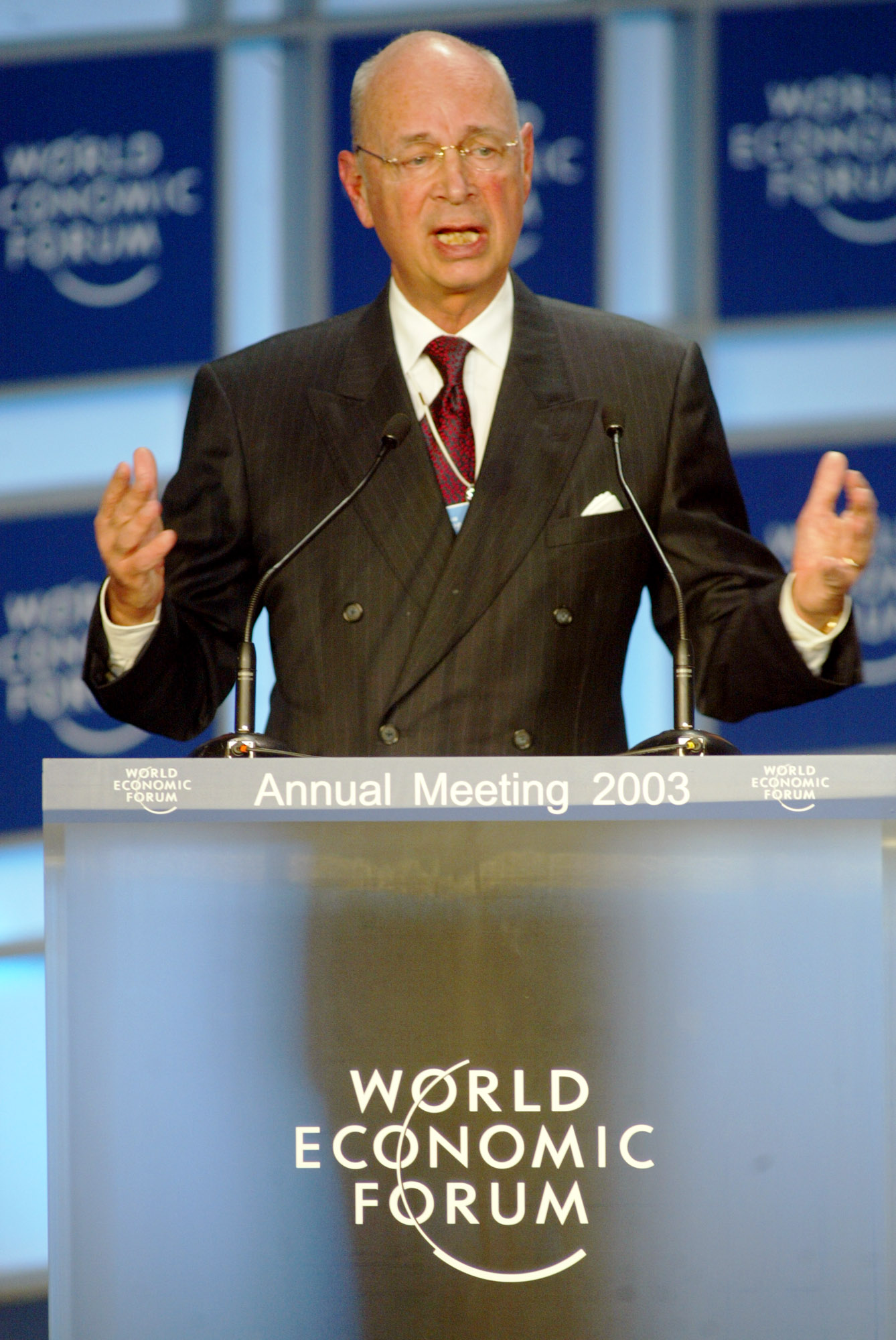
World Economic Forum founder Klaus Schwab speaks at the opening of the annual World Economic Forum in Davos, Switzerland, on Jan. 23, 2003. (AP Photo/Michel Euler)
But in fact, the two were a perfect match. Born in 1934 in Ravensburg (the first German city to forcibly sterilize “undesirable” citizens), Schwab was not yet born when Hitler came to power and still a child when World War II broke out. As I wrote in Controligarchs:
Klaus was too young to participate in Hitler’s regime. But growing up in wartime Germany left a lasting impression on the boy. Unable to associate his national identity with the Nazis amidst the chaos of their failed regime, he craved nothing more than identity and order. Ultimately, Klaus found his identity—not as a citizen of Germany—but as a citizen of the world.
The same is true of other ancient globalists like nonagenarian George Soros who famously told 60 Minutes’ Steve Kroft that witnessing the confiscation of the property of fellow jews during the Nazi Holocaust was “not at all” difficult because it was going to happen “whether I was there or not.” Thus, the self-described “citizen of the world” Soros offered a familiar tragedy-of-the-commons rationalization. “In a funny way, it’s just like in markets,” he told Kroft, explaining that someone would have confiscated the property regardless of what he did.
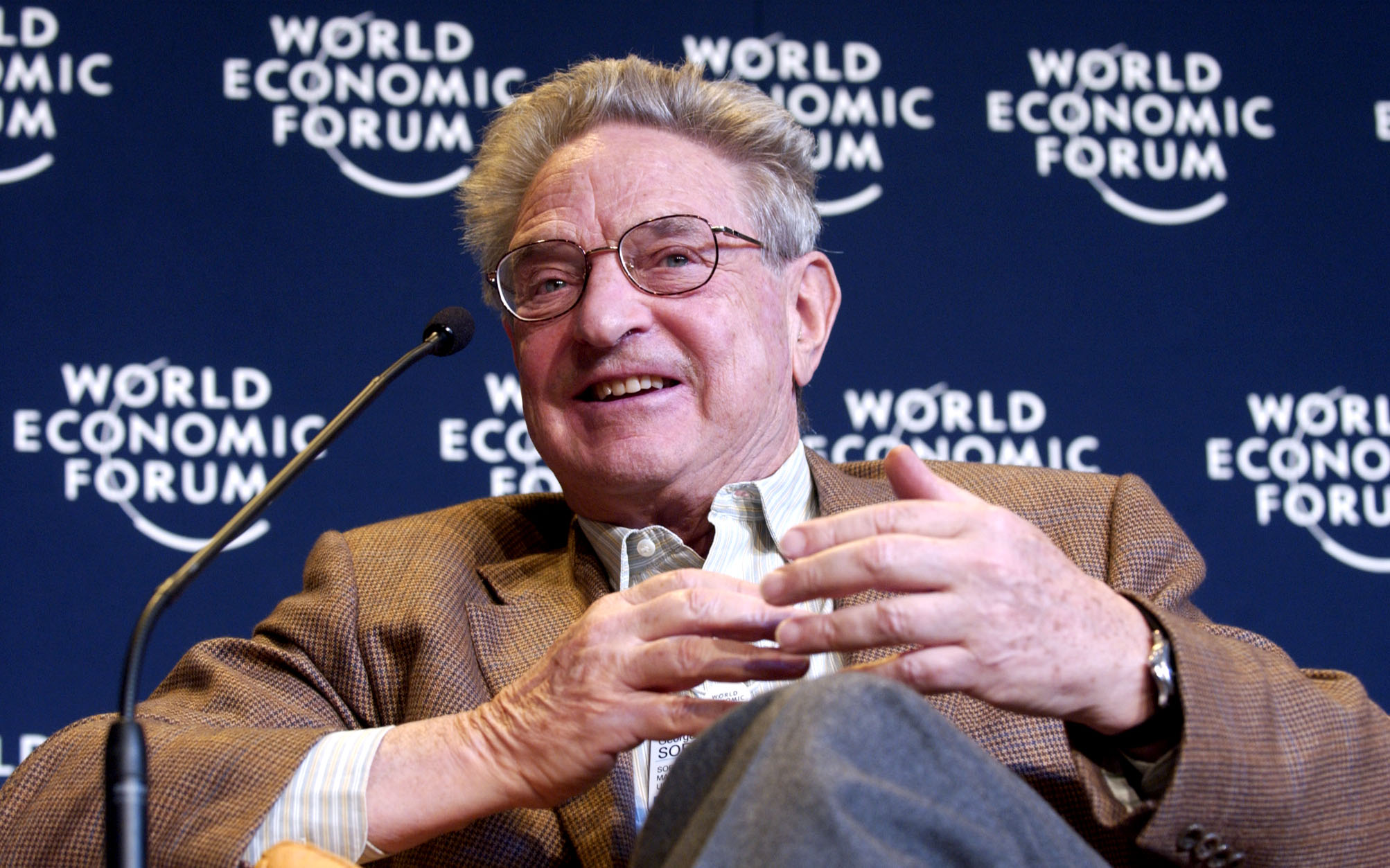
Billionaire financier George Soros attends a panel discussion at the World Economic Forum in Davos, Switzerland, on January 23, 2004. (Daniel Acker/Bloomberg via Getty Images)
The Rockefellers were notorious for funding depopulation efforts of every kind, including birth control and abortifacients, eugenics, and even the development of an “anti-fertility vaccine.” In one 1969 proposal from Planned Parenthood’s Frederick Jaffe to Rockefeller’s Population Council President Bernard Berelson, Jaffe lists “compulsory” sterilizations and abortions, efforts to “encourage increased homosexuality,” and even putting “fertility control agents in the water supply” as potential ways to curb population growth.
Five years later, a 1974 National Security Study Memorandum for the “Kissinger Report” articulated a “U.S. Global Population Strategy,” turning Rockefeller’s control ambitions into official U.S. government policy. The Kissinger Report sought to actively “Create Conditions for Fertility Decline,” to “Improve Fertility Control Technology,” and to wage an anti-family propaganda war on the masses via the “Utilization of Mass Media and Satellite Communications System for Family Planning.”
Kissinger’s Prospect handbook for the elite corporate class revealed at least one ulterior reason why the Controligarchs seem hellbent on controlling population growth: less population equals fewer potential enemies. “Fortunately… [Japan’s] population increase brought under control,” the report says of the recent Axis enemy. The report spills considerable ink on the threat of growing (communist) populations.
The Controligarchs would prefer that history forget that Western organizations like their Club of Rome were responsible for convincing China to adopt a brutal “one-child” depopulation program. And Rockefellers’ biographers wrote that in the first half of the twentieth century, “Communist countries were opposed to any programs of action in the population field” — sound pro-growth logic. It took a number of years before Rockefeller efforts made “enough of an impact to stir Malthusian fears of a ‘population explosion’ in the public mind.”
[embedded content]
Kissinger’s Prospect for America was used by President John F. Kennedy and his successors to craft both foreign and domestic policy, which included the opening of America’s borders to cheap foreign labor.
Kissinger has since admitted that opening Western borders to more diverse cultures may be an error. “It was a grave mistake to let in so many people of totally different culture and religion and concepts because it creates a pressure group inside each country that does that,” he said in one of his final public statements regarding pro-Hamas protests in Germany last month.
The Prospect for America manifesto was rightly anti-Communist, but its proposed “indispensable” solution to the Chinese communist problem—“sustained economic and technical co-operation and unimpeded exchange of goods and services”—has played out over the decades with disastrous consequences for middle class citizens everywhere.
Nelson Rockefeller introduced Kissinger to Nixon and thereby brought him into the limelight—from a behind-the-scenes influencer to a star diplomat on center stage. Since then, Kissinger and the Rockefellers and many other Controligarchs got rich from the CCP relationship. And they took pride in their integral role in building up China. Klaus Schwab, for his part, boasts of the WEF’s efforts to develop China’s economic system as a hybrid of communism and capitalism.
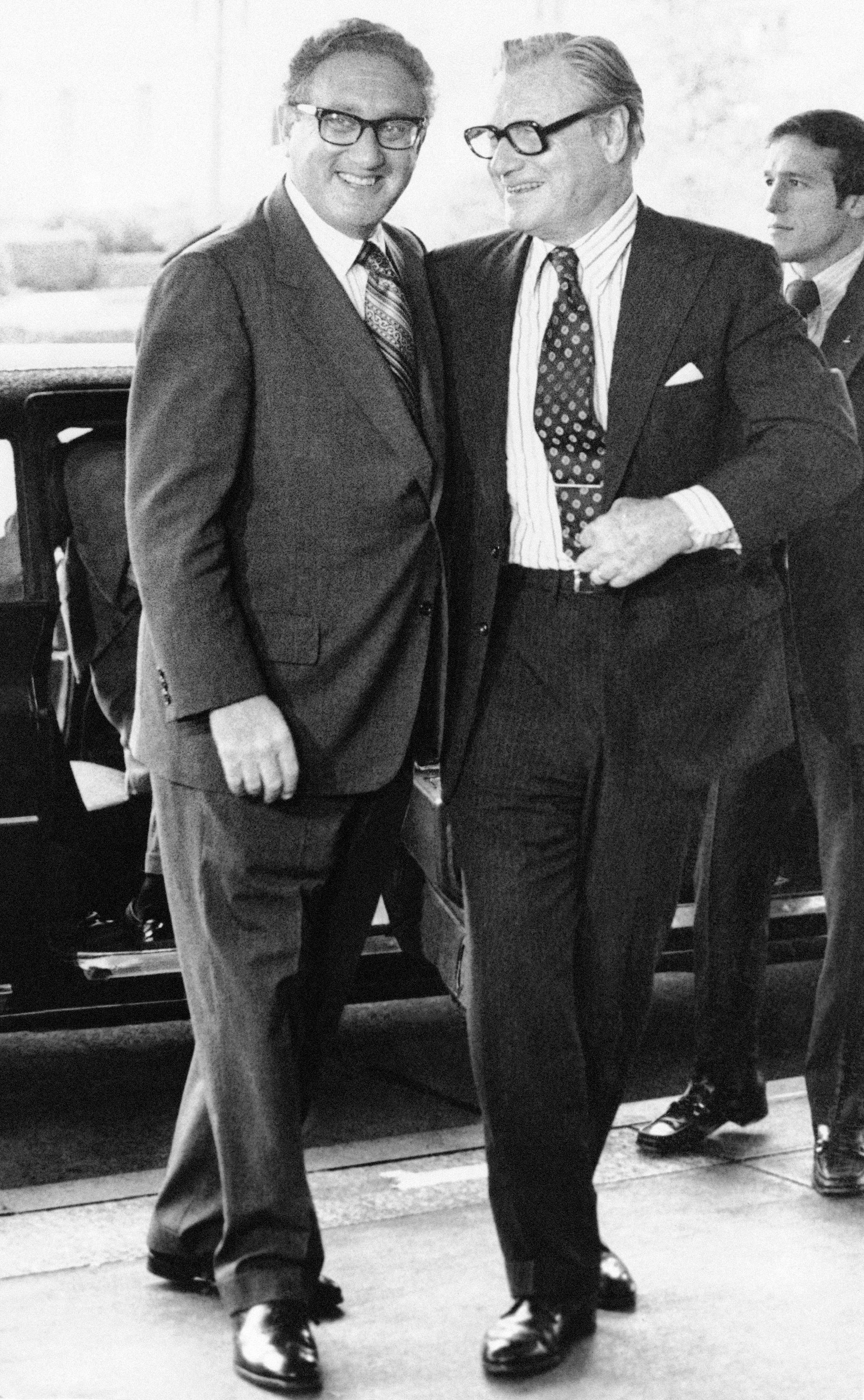
Secretary of State Henry Kissinger (left) greets Vice President-designate Nelson Rockefeller as he arrived at the State Department in Washington on August 22, 1974. (AP Photo/John Duricka )
Today, Chinese state-run media cites Kissinger’s 2022 WEF address in Davos as proof that the U.S. government does not actually support Taiwan’s right to exist, but rather officially upholds “the principle of one China.”
And while, like Soros, Kissinger became an American citizen, their loyalties were to something loftier. Kissinger, Schwab, and Soros were born to build a New World Order. Woodrow Wilson spoke of a “new international order” as early as 1919, but the term was popularized by British author H.G. Wells in his 1940 book titled “The New World Order,” lending the term a definition that still applies. “It is the practical realization of the brotherhood of man,” Wells wrote, “through a common control.”
Bringing rigid order to a chaotic world was an ambitious goal—one that both the political right and left endeavored to effectuate. Kissinger spoke of the virtues of a new world order in which no single nation, including the U.S., would be a dominant player. Rather, a balance of power between the U.S., China, and other powerful nations was “a necessity.” More recently, in 2009, Soros said we, “I think you need a new world order, that China has to be part of the process of creating it and they have to buy in.”
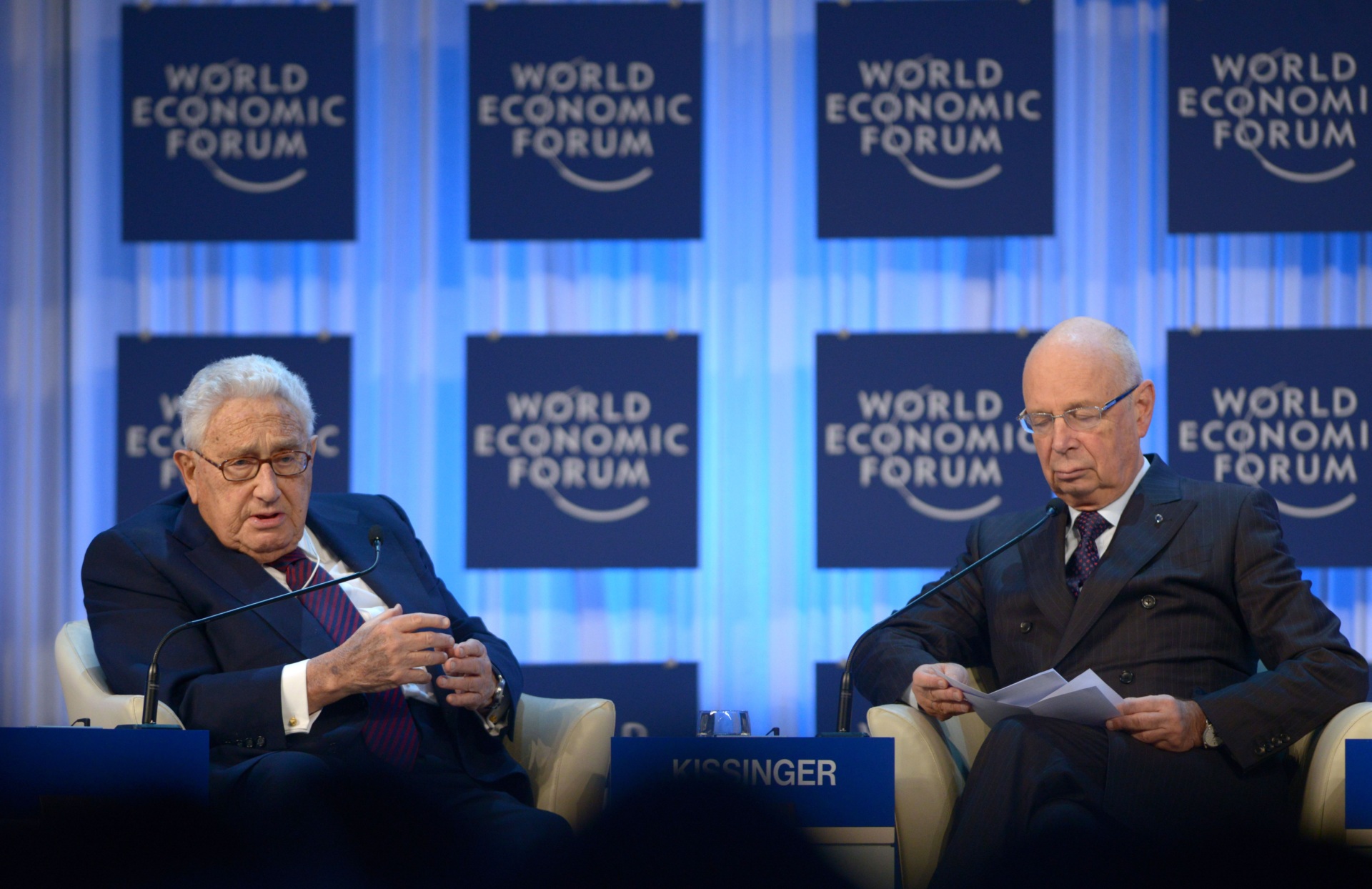
Former Secretary of State Henry Kissinger (lefts) talks with World Economic Forum (WEF) founder Klaus Schwab during the annual WEF meeting on January 24, 2013, Davos, Switzerland. (JOHANNES EISELE/AFP via Getty Images)
And just last month, BlackRock CEO Larry Fink praised Kissinger as an “amazing man, especially at 101 [sic].” His firm has been carrying on Kissinger’s globalist pro-China legacy despite some setbacks. A BlackRock “2023 Outlook” assures that a new world order is finally here with a “new regime” of greater “volatility” and “persistently higher inflation.”
In other words, the future that Kissinger and the Controligarchs have built looks decidedly grim.
Seamus Bruner is author of Controligarchs: Exposing the Billionaire Class, Their Secret Deals, and the Globalist Plot to Dominate Your Life and the Director of Research at Peter Schweizer’s Government Accountability Institute. Follow him on X @SeamusBruner.
